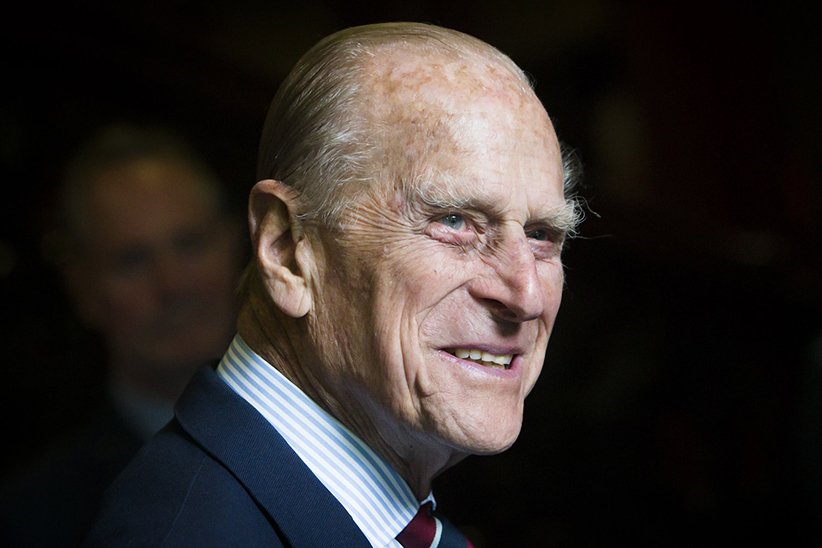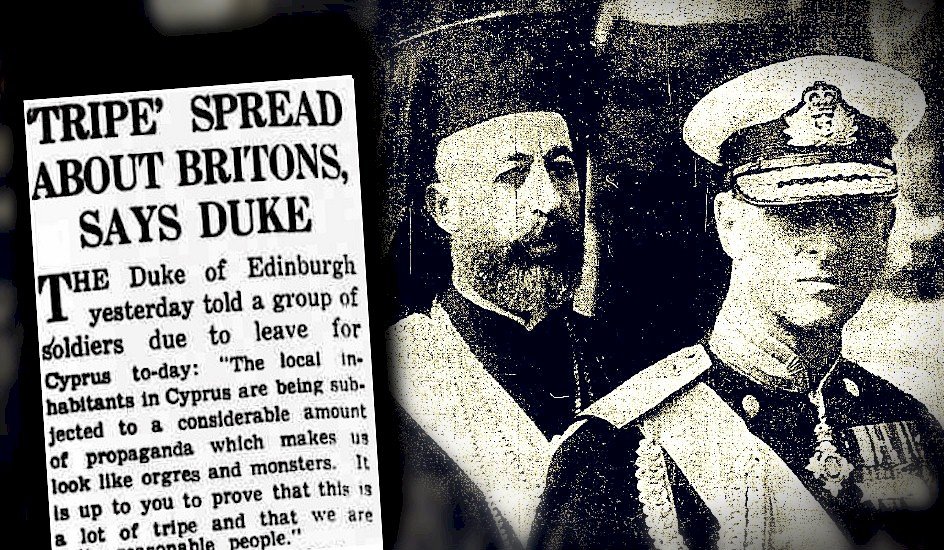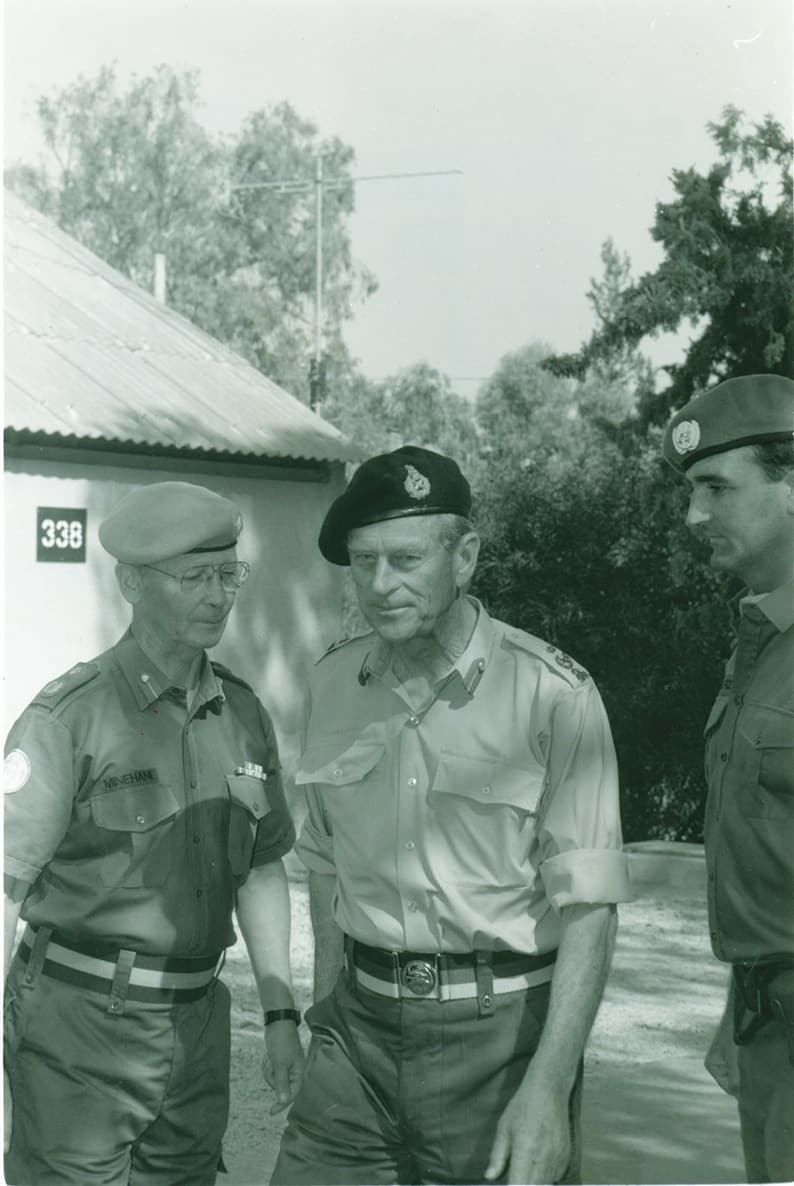The Cyprus Mail reposts an August 2017 article on Prince Philip’s relationship with Cyprus, written when it was announced he was retiring from public duties
By Nathan Morley
THIS week the Duke of Edinburgh wrapped up seven decades of engagements, ending an extraordinary life of public service which has taken him to over 140 countries.
His decision – which was fully supported by the Queen – came as a surprise as he still, even at the age of 96, seemed to relish his public duties.
His career has spanned the lifetime of modern Cyprus – in fact, years before Princess Elizabeth was in his life, he was racing around these parts with the Royal Navy.
As an officer in the Mediterranean fleet, Cyprus was familiar to him and this period of his career was ‘central to his existence’, according to royal historian Christopher Warwick.
In all, he spent a decade in local waters – much of it during the war – running the gauntlet of German U-boats preying on Allied targets between Cyprus, Malta, Egypt and Gibraltar.
“I think that the military gave Philip a very important sense of purpose,” royal commentator and author Katie Nicholl told the Sunday Mail.
“When he married Princess Elizabeth it was important that he had an identity of his own. He has always been a very physical and active man and so the navy suited him very well and he loved his years as a serving officer.”
Wooing Cyprus
It was in the summer of 1950 that many Cypriots got their first proper glance of the dashing prince, when he docked at Famagusta, as first lieutenant on the destroyer Chequers.
The vessel was well known for its patrols to prevent illegal Jewish immigration into Palestine after the Second World War.
By then, the young royal had made his meteoric appearance onto the international scene, having married Princess Elizabeth two years earlier
Looking every bit the steely war-hero, he marched down the gangway to be greeted by the then Governor, Sir Andrew Wright.
Together, they were whisked around the island, visiting historical landmarks, including the Venetian church of Saint Sophia, where ‘enthusiastic crowds cheered’ on. From there it was onto the Cyprus Museum and a meeting with men from the Oxford and Buckinghamshire Light Infantry.
This trip was significant for Prince Philip, as Cyprus marked his last voyage before he took his first naval command.
There were frequent long-distance calls from the bridge of the HMS Chequers in Famagusta to London, where his wife Princess Elizabeth was heavily pregnant.
Three weeks later, Princess Anne was born – and the news was broadcast on Nicosia Radio, which also announced a public holiday to mark the special occasion.
However, by 1953, his exploits on the ocean waves were over.
“All that was brought to an abrupt end when King George VI died and his wife became queen and he assumed the role of consort,” Christopher Warwick says.
His new public duties were mostly on dry land and included visiting events like the British Industries Fair in 1955, where his infectious humour spread after he inspected the Cyprus exhibit with the queen.
The duke was presented with two Paphos sponges – one for Prince Charles and the other for Princess Anne – by the Cyprus commander in London.
The duke thanked him and amid laughter, pointed to a large sponge about 18 inches in diameter and said: “What about the big one for me.”
Warwick says he was known for his quips and this kind of role suited the young prince: “I would say that on the whole Prince Philip has enjoyed his foreign travels.”
“His role has seen him accompany the queen on something like 140 state visits and Commonwealth tours – including four or five visits to Cyprus – while he himself has undertaken over six-hundred solo trips, including a world tour in 1956-7.”
Eoka
It was just ahead of that world tour that Prince Philip felt the brunt of souring relations with Cyprus, as the Eoka struggle took hold on the island.
When the Wiltshire Regiment – of which Philip was colonel-in-chief – arrived in Nicosia in 1956, the relationship quickly deteriorated.
The hanging of Eoka fighters Michael Karaolis and Andreas Demetriou in the central prison at Nicosia that summer caused an immediate cessation of work throughout the island.
Anger spread to Greece, where in a suburb near Athens, a local mayor smashed a plaque at the chapel of St Philip and St Elizabeth which had commemorated the wedding of Queen Elizabeth and the Duke of Edinburgh.
Holding a hammer in his hand, the mayor said: “The execution would for ever be a stain on the British crown.” Meanwhile, in Corfu – Philip’s birthplace – an editorial signed by the publisher of the local paper Kerkyraika said the Duke of Edinburgh could not remain a citizen of Corfu because of the Cyprus situation.
Such incidents caused Philip’s “love-hate relationship with Greece”, journalist Phil Dampier told the Sunday Mail.
“He was of course born in Corfu but his father Prince Andrew was put on trial and exiled. The current King Constantine was also exiled for many years until he returned there in 2013. It is significant that Greece is one of the few countries in the world that the Queen and Philip have not made an official visit to.”
Indeed, the news from Greece in 1956, regarding Cyprus left a strong imprint on the prince.
He told a group of soldiers leaving for Nicosia that: “The local inhabitants in Cyprus are being subjected to a considerable amount of propaganda which makes us look like ogres and monsters. It is up to you to prove that this is a lot of tripe and that we are quite reasonable people.”
Four years later, Cyprus gained her independence. In 1961 the queen and Prince Philip made a brief stop in Akrotiri, where they held a private talk with the new president, Archbishop Makarios, at the officers’ mess.
The Cyprus Mail reported that the meeting “set the final seal on the restoration of good relations between the two countries”.
Friendly ties were resumed, and over the coming years the Duke of Edinburgh paid several visits to the British forces on the island.
“He takes a close interest in the armed forces throughout the Commonwealth, not just the UK and he will always put politics to one side to support the regiments he is inspecting,” Phil Dampier adds.
Jeered in Nicosia
However, on his last major visit in 1993, political baggage from the 1950s returned to plague the queen and duke during a weeklong stay.
The royal couple spent seven days in Larnaca on board the yacht Britannia, during a Commonwealth heads of government meeting.
The trip was marred by controversy over whether the queen should be granted the golden key to Nicosia, as some continued to blame her for the execution of Eoka fighters.
A hunger strike was held and flyers with the queen’s photo saying, ‘Wanted for the killing of freedom fighters’ were posted around Nicosia.
Although we may not see much of Prince Philip from now on as he passes the buck to younger generations, Buckingham Palace has been careful about not using the word ‘retirement’.
“Rather (they say) is that he is ‘stepping down’ from further official engagements,” Christopher Warwick says.
“You and I would nevertheless understand it as ‘retirement’. He will, of course, make public appearances, no doubt along the lines of accompanying the queen on occasions such as Trooping the Colour, the Garter ceremony, Royal Ascot and so on. But it gives him the freedom to do (or not to do) whatever he pleases. So I would say it will suit him.”
Dampier says the duke continues to have a ‘deep affection for Greek culture and traditions’, and he is very interested in all religions and reads extensively.
“It’s unlikely that at 96 he will ever return to the land where he was born,” he adds.
For students in Cyprus, the title ‘Duke of Edinburgh’ remains well known through his award scheme, which is delivered by various licensed organisations, known as Independent Award Centres.
Last year the scheme had over 2500 participants in Cyprus.
Over the last few weeks, the Duke has been joking about his retirement: “I’m discovering what it’s like to be on your last legs”, he told celebrity cook Prue Leith at a Palace event.
Wearing a raincoat and bowler hat, the Duke raised his hand and waved goodbye to crowds at his last official solo engagement on Wednesday.
Prince’s Greek links
Prince Philip was born in Corfu in 1921 – the fifth child of Prince Andrew of Greece and Princess Alice of Battenberg and the nephew of King Constantine.
His family fled Athens after a coup in 1922 and relocated to France. Philip moved to England to live with his grandmother in 1928.
By 1947, he had renounced his rights to the Greek throne and become a British subject, marrying Princess Elizabeth the following year.










Click here to change your cookie preferences